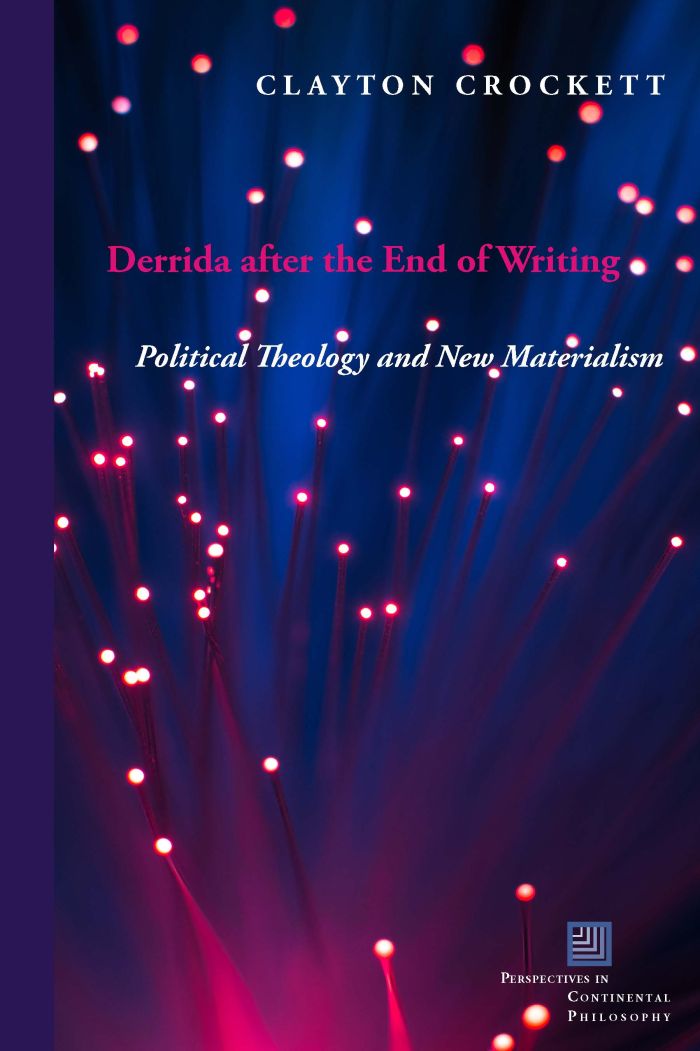Derrida after the End of Writing
Political Theology and New Materialism

This book can be opened with

What are we to make of Jacques Derrida’s famous claim that “every other is every other,” if the other could also be an object, a stone or an elementary particle? Derrida’s philosophy is relevant not just for human ethical language and animality, but to profound developments in the physical and natural sciences, as well as ecology.
Derrida After the End of Writing argues for the importance of reading Derrida’s later work from a new materialist perspective. In conversation with Heidegger, Lacan, and Deleuze, and critically engaging newer philosophies of speculative realism and object-oriented ontology, Crockett claims that Derrida was never a linguistic idealist. Furthermore, something changes in his later philosophy something that cannot be simply described as a “turn.” In Catherine Malabou’s terms, there is a shift from a motor scheme of writing to a motor scheme of plasticity.
Crockett explores some of the implications of interpreting Derrida through the new materialist lens of technicity or plasticity, attending to the significance of ethics, religion, and politics in his later work. By reading Derrida from a new materialist perspective, Crockett provides fresh readings of his ideas of sovereignty, religion, responsibility, and mourning. These new readings produce fruitful engagements with the thinkers who have followed Derrida, including Malabou, Timothy Morton, John D. Caputo, and Karen Barad.
Here is a new reading of Derrida that moves beyond conventional understandings of poststructuralism and deconstruction, a reading that is responsive to and critical of some of the crucial developments shaping the humanities today.
“This book is not for you—if you think the specter of Derrida can be exorcised. Clayton Crockett has millennially updated and multi-discursively refreshed deconstruction itself. With transdisciplinary panache and a haunting intimacy, this leading philosopher of religion brings forth the political theologian and new materialist Derrida could only become postmortem.”——Catherine Keller, George T. Cobb Professor of Constructive Theology, Drew University, and author of Intercarnations: Exercises in Theological Possibility
...Crockett's book is an extremely important work on the future of deconstruction. Not only does it engage with much of the current scholarship on Derrida and on contemporary continental philosophy more generally, but it also makes a compelling case for a post-writing reading of Derrida, and is sure to make a lasting impact on how we read and think with Derrida.—Notre Dame Philosophical Reviews
Clayton Crockett’s Derrida after the End of Writing: Political Theology and New Materialism is a book that not only offers an interpretive reading of Derrida’s major works but also shows how Derrida remains relevant both to and beyond philosophy today.—Derrida Today
Crockett’s latest has brought together many threads he began weaving in previous work and has added still new ones, expanding and molding the conversation in continental philosophy of religion and political theology in exciting directions.—Reading Religion
Please click the link below to download the Open Access version of this book.

